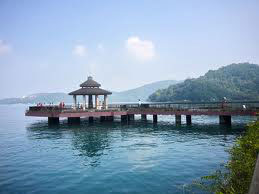



Taipeieco.it - The Economic Division of Taipei Representative Office in Italy
News
Talent shortage top issue facing Taiwan chipmaking industry: Expert
03/22/2023 08:45
PMListen
Taipei, March 22 (CNA) Taiwan's semiconductor industry faces multiple
challenges, from the need to conduct further research into forward-looking
technologies to a shortage of talent, an industry executive said Wednesday.
Advancing forward-looking semiconductor research and nurturing related talent requires long-term joint effort by the industry, government and academia, said Chang Meng-fan (張孟凡), director of Corporate Research at Taiwan Semiconductor Manufacturing Co. (TSMC), the world's largest foundry.
Chang outlined the challenges in a speech delivered at a semiconductor forum organized by the National Science and Technology Council (NSTC) in Hsinchu.
Noting that FinFET (fin field-effect transistor) technology has been used for more than a decade by chip manufacturers to develop advanced microprocessors, Chang said nanosheet is the next promising technology that promises to go beyond the performance limitations of FinFET.
In the future, complementary field-effect transistors (CFET), a future transistor type with great potential transcend 3-nanometer technology; and carbon nanotubes, nanoscale hollow tubes composed of carbon atoms, may also be developed, according to Chang.
However, the academic sector will need to first explore the benefits of these emerging technologies, he said.
Chang Meng-fan,
director of Corporate Research at Taiwan Semiconductor Manufacturing Co., is
pictured at Wednesday's semiconductor forum in Hsinchu. CNA photo March 22, 2023
Chang said that in the past, Taiwan has focused on short-term semiconductor
development. However, with the world-leading position of its semiconductor
industry, government and enterprises should attach greater importance to mid to
long-term research and development of new technologies, he added.
Other than making breakthroughs in the miniaturization of transistors, developing the manufacturing technology to produce three-dimensional integrated circuits (3DICs) that fully utilize and optimize silicon across all three dimensions to perform system-level integration with smaller package size and higher interconnection density is also important, according to Chang.
The technology offers big payoffs in performance, power and area (PPA), Chang said, referring to the three variables used in deciding how to optimize semiconductor designs.
He added, however, that talent in this area and electronic design automation in Taiwan are in short supply.
According to Chang, cooperation between TSMC's manufacturing process R&D and design teams continues to increase, with the participation rate of its designers in 3nm process R&D having reached 50 percent and expected to continue to rise.
The demand for semiconductor talent is not limited to a single field, Chang said, adding, for example, that TSMC needs talent in research and development, operations technology, strategy and support etc.
In addition, FinFET architecture has been used in the industry for over a decade. At present, the academic sector's research is still confined to traditional transistor architecture, according to Chang.
Therefore, there is a large gap between academic research and industrial applications, which necessitates that industry spend a lot of time training new recruits, greatly increasing costs, he added.
NSTC Minister Wu
Tsung-tsong. CNA photo March 22, 2023
Meanwhile, NSTC Minister Wu Tsung-tsong (吳政忠) said that despite Taiwan's
leadership in the global semiconductor industry, the country needs to reinforce
the development of its IC design sector, one of the main sources for industrial
applications and the driving force for the future development of the
semiconductor industry.
Wu said the NSTC plans to set up a semiconductor base in Europe to attract international IC design talent and send them to Taiwan.
The government aims to build Taiwan into an international IC design center by 2035 through inter-ministry cooperation, Wu added.
Also at the forum, Lawrence Loh (陸國宏), senior corporate vice president at MediaTek Inc., said that Taiwan's IC design industry ranks second in the world and needs high-quality engineering talent.
However, Loh expressed concern that Taiwan has less engineering talent than the United States, Europe, China and South Korea.
Loh suggested that Taiwan consider strengthening globalization by attracting foreign professionals to the country, setting up research and development bases overseas, and continuing to encourage Taiwanese talent overseas to return home.
He also said the country should prevent foreign businesses from poaching Taiwan's top-end IC design talent.
(By Jackson Chang, Chang Ai and Evelyn Kao)
Source, https://focustaiwan.tw/business/202303220018
Ufficio di Rappresentanza di Taipei - Viale Liegi n.17, 00198 Roma | Tel. 06-98262800 - P. Iva 97076980586